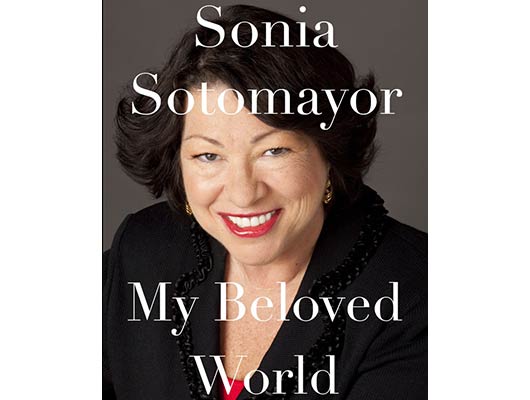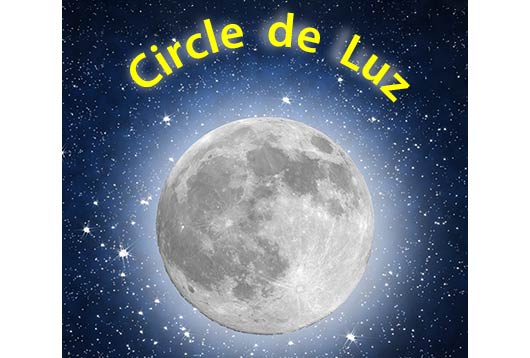
It’s often said that for both men and women, the most complicated relationship we’ll after have is with our mother. Supreme Court Justice Sonia Sotomayor appears to be no exception to this rule, as her new autobiography, My Beloved World, suggests.
When Sotomayor was nominated by Barack Obama to be the nation’s first Hispanic and third female justice of the Supreme Court of the United States, she publicly and emotionally thanked her mother, who was seated in the front row of the White House audience.
“I stand on the shoulders of countless people,” Sotomayor said, as her mother dabbed at her eyes with a tissue. “Yet there is one extraordinary person who is my life aspiration. That person is my mother, Celina Sotomayor. My mother has devoted her life to my brother and me. And as the President mentioned, she worked often two jobs to help support us after Dad died. I have often said that I am all that I am because of her, and I am only half the woman she is.”
Read Related: Sonia Sotomayor Opens Up About Her Bronx Upbringing
It was a beautiful tribute, one that painted a portrait of a fierce, loving mother who played the role of both parents and gave her children everything they needed to escape the crushing poverty of their Bronx housing project, attend Ivy League schools (for Sotomayor, Princeton; for her brother Juan, a physician, University of Pennsylvania) and go on to phenomenally successful careers. But Sotomayor’s autobiography, which was released earlier this month with intense media promotion, tells of a strained relationship with an emotionally distant, often physically absent Celina, and a mother-daughter bond that was fraught with tension.
Join the Conversation: Mamiverse Twitter-Talk with Award-Winning Journalist Jorge Ramos
Much of Sotomayor’s journey was well-known before the release of My Beloved World. Her parents came to New York from Puerto Rico and landed in a housing project in the Bronx, where a young Sotomayor had to step over hypodermic needles littering the hallways and avoid stairwells for fear of running into a junkie or a mugger. Her father, a tool and die worker with whom she shared a warm relationship, was also a frequently out-of-control alcoholic who fought constantly with her mother. To avoid the emotional turmoil at home, Sotomayor’s mother worked nights and weekends, so her children saw her infrequently. When Sotomayor was diagnosed with diabetes at age 7, she took to giving herself insulin shots, as her parents seemed unable to deal with managing her illness. This was an early step towards the self-reliance that would define Sotomayor’s life and career.
In part because of his unchecked alcoholism, Sotomayor’s father died when she was 9, leaving her mother to raise two young children alone. Her mother persevered, and went from being a telephone operator at the Bronx’s Prospect Hospital to a registered nurse to emergency room supervisor at the same hospital. She scrimped and saved so that her kids could have a set of Encyclopedia Britannica and attend a private Catholic School for a better education.
While these compelling details of Celina Sotomayor are widely known, there is more to the Supreme Court Justice’s relationship with her mother. Sotomayor describes an emotionally detached figure who was seemingly incapable of showing love and affection, and the years it took for her to understand her mother and build the warm and loving relationship they share today. Because her mother’s journey makes Sonia Sotomayor’s seem easy by comparison.
Celina Baez was born in rural Puerto Rico and orphaned at the age of 9, when her mother died and her father abandoned her. But even as an abandoned child in poverty stricken Puerto Rico, she realized the importance of education. At 17, she joined the U.S. Army for a ticket out of her hardscrabble life and a shot at an education. She was trained as a phone operator in Georgia—even though she barely spoke English, met her husband, Juan Sotomayor, and settled in the Bronx to raise her family. It should have been a happy life, but her husband’s alcoholism shattered any peace the family might have enjoyed.
Join the Conversation: Mamiverse Twitter-Talk with Award-Winning Journalist Jorge Ramos
As a girl growing up, Sonia Sotomayor recalls harboring great resentment towards her mother for a host of things—her father’s drinking and death, having to attend Catholic school, and her mother’s emotional absence. It was only years later, Sotomayor writes, in heart-to-heart discussions with her mother that she understood that her mother’s own abandonment as a child was at the root of her emotional detachment. That, coupled with the dysfunction of her marriage and later, the grief and sense of failure at losing her husband, led her to retreat into herself, just as she’d learned to do as a child.
Sonia Sotomayor herself learned much of her self-reliance from her difficult childhood and absent parents. This independence and wherewithal allowed her to be named valedictorian of her high school graduating class, go from earning her first “C” at Princeton to graduating summa cum laude, attend Yale Law School and serve as editor of law journal, and go on to a distinguished career in private and public law. And that was all before she was nominated to the Supreme Court. Ultimately, it seems, Sotomayor and her mother are cut from the same cloth; without adults to depend on, they learned to fend for themselves, rely on themselves, and thrive through their individual efforts.
Sotomayor’s account of her mother’s and her difficult journeys is a reminder to all of us daughters and sons that our parents are human too. Some fathers drink too much. Some mothers are emotionally detached, even when we need them the most. Each is probably doing the best they can with what they’ve got to work with. Not all stories are as extraordinary as that of Sonia and Celina Sotomayor, but the Supreme Court Justice’s intimate biography is a reminder that hers is, ultimately, a story of the strength and frailty of the human heart, and the difficult job of being a mother.
Join the Conversation: Mamiverse Twitter-Talk with Award-Winning Journalist Jorge Ramos











